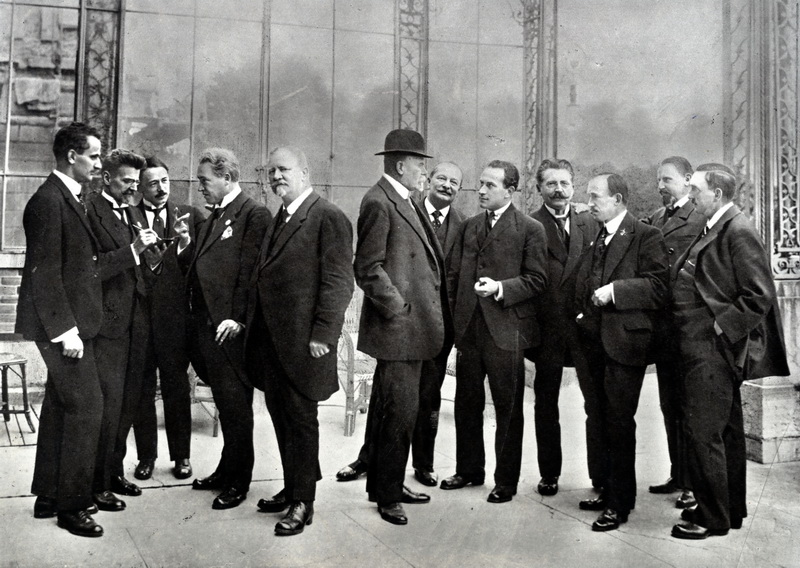3.9. 1915 The Czech Foreign Committee was founded
Categories: First World War , Calendar

In 1915, the Czech Foreign Committee was founded, which was the first political body of the Czechoslovak resistance. Beneš, Masaryk and Štefánik were involved in its establishment.
Like most of the personalities of the Czech political representation of the time, T. G. Masaryk did not envisage the establishment of an independent Czech state until 1914. After the outbreak of the First World War, at the age of sixty-four, when other people thought Masaryk began to advocate the secession of the Czech lands from the Habsburg monarchy. In December 1914, he left for the then neutral Italy, promising his family that he would return soon.
"But as this was his several foreign trips in the first post-war year, the Austrian authorities became suspicious and Masaryk could not return for fear of arrest. His daughter Olga accompanied him to Italy. He left his wife Charlotte, daughter Alice and son Herbert Jan at home," writes Jan Bauer in his book Revolutionary Events in Czech History.
Before his departure, Masaryk recruited a group of mostly much younger friends to work with him.headed by sociology associate professor Edvard Beneš, lawyer Přemysl Šámal and Sokol chief Josef Scheiner, who formed the resistance organisation Maffie.
It was, of course, a very risky action, but Masaryk was lucky. Strangely enough, together with the agrarian Josef Dürich, they were the only Czech members of the Reichstag who found themselves abroad during the war. That is why they, together with the French astronomer and Slovak-born aviator Milan Rastislav Štefánik and Edvard Beneš, who had fled after them, founded the Czech Foreign Committee in 1915.
"Dürich, in agreement with Karel Kramář, the most popular Czech politician at the time, envisioned an independent Bohemia as a kingdom with a prince from the Romanov family on the throne. Masaryk, however, based on his own knowledge of the Russians and their mentality, rejected a ruler from the Tsarist family. In private debates he admitted that he would have liked a Belgian or Danish prince as monarch. The contradiction was eventually resolved by Dürich's expulsion from the Czech Foreign Committee," Bauer writes.
The very next year, the Comité was changed to the Czechoslovak National Council, which sought to unify the foreign resistance and conduct political negotiations leading to the establishment of an independent state in which Czechs and Slovaks were to live. Czechoslovak legions were formed in Russia, Italy and France to fight together with the countries of the Agreement.
Sources.
The article is included in categories: